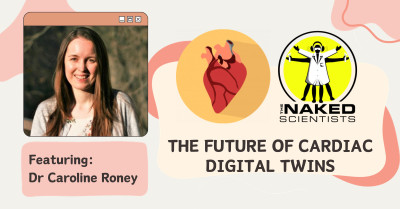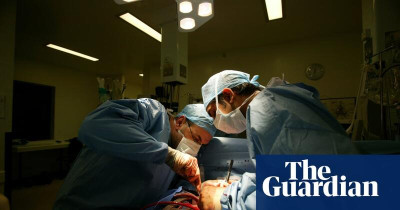News
The Future of Cardiac Digital Twins
5 December 2023


Dr Caroline Roney, Reader in Computational Medicine, recently featured in an episode of The Naked Scientists Podcast. In this insightful interview, she delved into the groundbreaking realm of digital twins and their pivotal role in revolutionizing the diagnosis and treatment of cardiac disorders.
During the podcast, Dr Roney illuminated the concept of digital twins in healthcare, emphasizing their significance in personalizing patient treatment. “Digital twins are all about tailoring treatments to each patient's unique needs,” she explained. Dr Roney highlighted the vast variation in heart shapes, sizes, electrical properties, and scar tissues among individuals, underscoring why cardiac health is an ideal candidate for digital twin technology.
Addressing the common and complex issue of atrial fibrillation, Dr Roney discussed how digital twins could enhance treatment efficacy and patient outcomes. She elaborated on the process of creating a digital twin of the heart, combining detailed imaging like MRI or CT scans with ECG data to produce a personalised, virtual beating heart model. This model allows for testing various treatments, such as catheter ablation therapy and antiarrhythmic drugs, tailored to individual patient profiles.
In a broader context, Dr Roney shared her vision of the future, where digital twins could be extended beyond the heart to encompass entire human systems. She mentioned Queen Mary's role in an initiative led by the Virtual Physiological Human Institute, focusing on creating a sustainable ecosystem for digital twins in healthcare - European Virtual Human Twin (EDITH).
Dr Roney’s work was recently presented at the Royal Society of Medicine's Digital Twins conference and highlighted by The Guardian, marking a significant shift in cardiac surgery from generalized to patient-specific treatments, ensuring more precise and effective care.
Her work not only promises to enhance the understanding and treatment of atrial fibrillation, affecting 1.5 million people in the UK, but also paves the way for innovative approaches across various medical fields.
| Contact: | Zion Tse |
| Email: | z.tse@qmul.ac.uk |
| Website: | |
| People: | Zion TSE Caroline RONEY |
| Research Centre: | Bioengineering |
Updated by: Zion Tse




